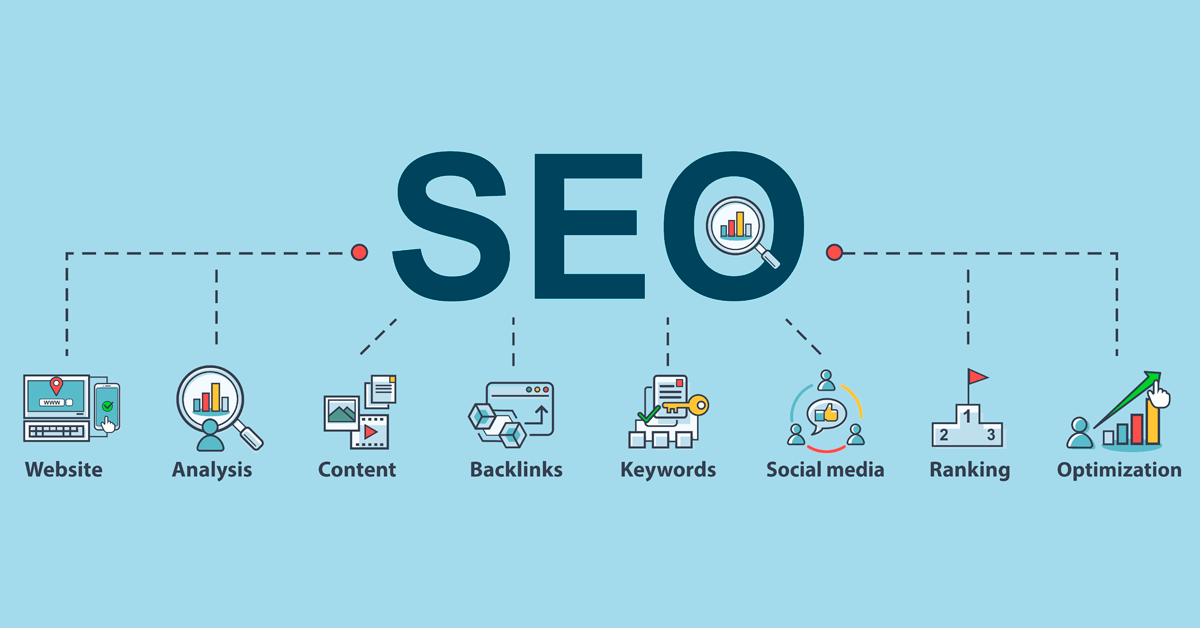You have a brand new website for your small business. It’s everything you hoped for and looks better than you imagined. But, there’s a problem. No one else knows how great it looks!
A beautiful website is great. It makes your small business look more professional and inviting and sets the tone for how you want people to think about your brand.
However, a beautiful website is only as good as the number of people who see it. That’s where search engine optimization (SEO) comes in.
SEO lets Google know what your page is about and why they should show it in search results when people type in specific words. It’s essential for Google to know exactly what your page is about.
For example, if you’re selling ice cream in Atlanta and your homepage is titled “The World’s Best Ice Cream” then you’re competing with recipes, tons of blogs, and websites of major companies with huge budgets.
But, if you title your home page “Atlanta’s Favorite Ice Cream Shop” then Google knows where you’re located and that you’re a local business “near me” when someone in Atlanta searches for ice cream shops.
That’s why effective SEO is so important to the success of your website, and your small business. Small details can make a big difference, and if you want your website noticed online, doing everything possible to gain an edge over the competition is crucial.
18 Fundamental Terms for SEO for Small Business
To help you get started with basic SEO for your small business website, we’ve created a short list of some of the words you might come across and why they’re important. These terms are just a small part of an overall SEO strategy to get your website noticed online.
1. Algorithm
The almighty algorithm. This is what search engines use to rank pages and decide what to show in search results. It’s highly complex and most search engines don’t want people to know exactly how their algorithm works.
2. Backlinks
These are links that lead back to your website from other websites. Quality backlinks are a major component of Google’s algorithm. The more websites that link back to a particular site, the more trustworthy (theoretically).
3. Click-through rate (CTR)
What does CTR mean? CTR in SEO is a measure of how many people see your page on search results and how often they click on it. If 100 people see your link and 2 of them click on it, your CTR is 2%, which is about average across industries.
4. E-E-A-T
Stands for “Experience, Expertise, Authoritativeness, and Trust” and is how Google measures the quality of a website’s content. They want well-organized and informative content to serve to users.
5. Google Analytics
Also known as GA, Google Analytics involves adding a code to your website so that Google can track how people use your website and give you information about who’s visiting and for how long.
6. Headings
These are also known as H1, H2, H3, etc., and let Google know which information is most important. It’s important to make sure your keywords are within the different headings on your site.
7. Keywords
What people will likely type into Google when searching for your type of product or service. Since these are words you want to rank for, choosing the right ones is crucial to getting seen online.
8. Long-tail keywords
Typically, these are questions that people might type into Google. Using the example above, a long-tail keyword for an ice cream shop in Atlanta might be, “where is the best ice cream in Atlanta?”

9. Meta description
A meta description is part of the technical SEO of a website. There should be one for each page and include your keywords. It’s the page description you see in search results and, if well written, can improve CTR.
10. On-page SEO
This is the SEO that visitors see when they visit your website. Effective on-page SEO means creating content that’s well-written and well-organized, but also built around keywords you want to rank for.
11. Ranking
The order in which your website shows up in search results for specific keywords and in specific locations. The ice cream shop would want to rank in the top 10 for “ice cream shops in Atlanta.”
12. Search Engine Results Page (SERP)
A SERP is what you see after typing a query into a search engine. It includes all the elements like ads, maps, featured snippets, and “also asked” questions. This also includes local SEO.
13. SEO title
The name of your page that’s displayed in search results and appears in your page’s tab at the top of the browser. It can be 70 characters long and should tell both Google and visitors what your page is about.
14. Sitemap
This can be either a visual representation of how your website is organized and/or a list of all the pages on your website. Most websites have a link at the bottom that leads to the sitemap. Search engines look at it.
15. Technical SEO
As opposed to on-page SEO, technical SEO includes title tags, meta tags, the structure of your website, and other features “under the hood” of your site. Visitors won’t see this type of SEO.
16. Title tag
A <title> tag is a string of hypertext markup language (HTML) code used to tell search engines what your page is about. It’s part of technical SEO, and unlike an SEO title, isn’t seen by visitors.
17. Traffic
How many people come to your website. Traffic can be viewed in real-time or as historical data to monitor your website’s performance. This is what you want to improve by focusing on SEO.
18. Website speed
This is how fast your website loads after someone clicks on a link to it. Google penalizes websites that load too slowly so it’s important to have a website optimized for speed.
How to Rank Well in Search Results as a Small Business
As a small business up against major competition, ranking in the top 10 in Google search results isn’t easy. But, effective SEO is also how to get your business noticed online, and well worth the effort.

How do you do it? Because thousands of companies might be trying to rank for the same keywords, it takes a combination of high-quality, unique on-page SEO content and optimized technical SEO to break through the competition and get your website ranking well.
Should I Hire an SEO Company for My Small Business?
Yes. Unless you have the time to devote to it, building traffic to your small business’s website through SEO will be very difficult. Hiring a company that specializes in SEO will give you a head start and skip the learning curve so you can start seeing results quicker.
However, be careful. A lot of companies dedicated only to SEO will take your money without delivering real results. And since search engine optimization encompasses how you design your website, what content is on it, how it’s presented, and the technical aspects of web development, it’s a good idea to work with a company that does it all, like The Kool Source.
Full-Service Digital Marketing Company in Atlanta
If you want to get noticed online, The Kool Source is here to help. We are a full-service digital marketing agency based in Atlanta with a decade of proven results for clients all over the United States.
Get in touch with us today if you’re ready to start getting real results from your website.
Thinking of hiring a digital marketing agency to handle your SEO? Check out this blog on how to communicate with them most effectively.
- Why “Agentic Commerce” Is Going to Revolutionize Online Shopping - February 2, 2026
- Mastering GEO for Marketing in Atlanta in 2026 - January 5, 2026
- Optimizing for AI-Driven Local Search in Atlanta (Local SEO for AI) - December 3, 2025


0 Comments